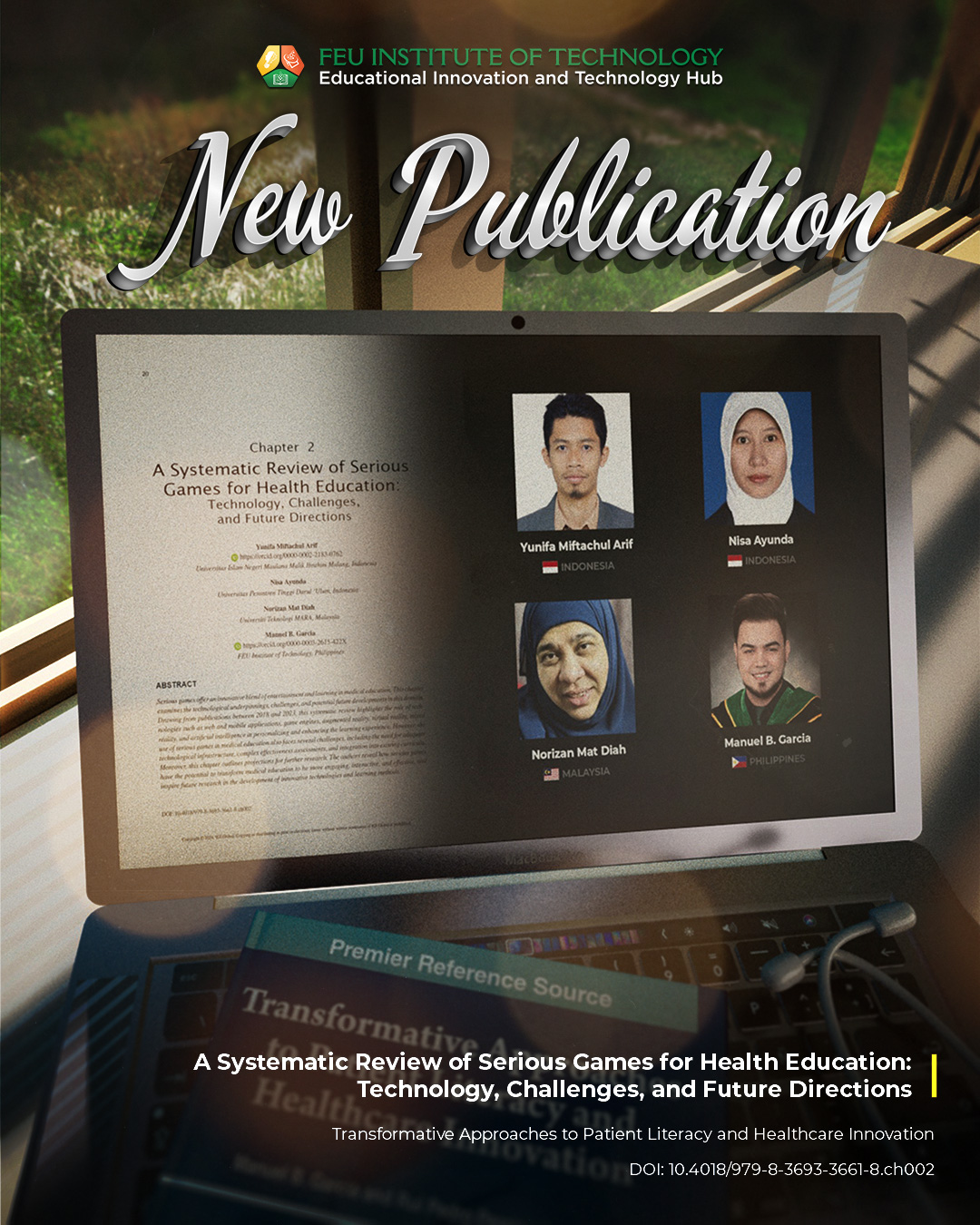The Future of Health Education is Serious: A Review of Game-Based Learning Technologies
A systematic review analyzes technology’s role in personalizing and enhancing the learning experience using serious games and game-based methodologies.
April 2, 2024
Research
Serious games are those specifically designed for educational or training purposes. Designers target specific concepts, developing new skills or behavior changes through engaging goal-oriented interactions. It enables an innovative learning experience where players can learn in an interactive environment. To maintain player interest, serious games use various elements, like graphics, narrative, and details.
In health education, serious games deliver health information and clinical training through diverse and sophisticated scenarios. This engaging format, combining entertainment with education, simplifies complex topics and allows for realistic simulations, creating a natural bridge to discussions about real-world situations.
Chapter 2 of “Transformative Approaches to Patient Literacy and Healthcare Innovation†by Manuel B. Garcia (FEU Institute of Technology, FEU) and Rui Pedro Pereira de Almeida (University of Algarve, Portugal), titled “A Systematic Review of Serious Games for Health Education: Technology, Challenges, and Future Directions†explores technology’s roles in personalizing and enhancing the learning experience and outlines projections for further research.
Joining Garcia in this insightful review are Yunifa Miftachul Arif (Universitas Islam Negeri Maulana Malik Ibrahim Malang, Indonesia), Nisa Ayunda (Universitas Pesantren Tinggi Darul ‘Ulum, Indonesia), and Norizan Mat Diah (Universiti Teknologi MARA, Malaysia).

Providing A Fresh Perspective on Serious Games
This chapter examines the effectiveness of serious games in medical education. It explores how these games improve learning, fit into curriculums, and balance education with engagement.
The researchers combined learning theories with recent AI developments to provide a fresh perspective on the topic, which targets educators, researchers, and game developers by using clear explanations while maintaining academic integrity.
Furthermore, through the chapter, the review’s proponents utilized a research method combining literature review from real-world case studies. It contributes to the discussion on digital education by critically analyzing how these games can educate future healthcare professionals. Ultimately, the chapter aims to provide practical insights for designing effective educational interventions that resonate with today's digitally savvy students.
Using A Systematic Literature Review Method
The researchers chose a systematic literature approach to discuss the topic of serious games in health education because it enables structured and in-depth research into relevant literature. They also adhered to the Preferred Reporting Items for Systematic Reviews and Meta-Analyses (PRISMA) guidelines throughout their research process to ensure the highest transparency standard and reporting completeness.
Moreover, they followed a strict plan to find the best studies on serious games in health education. The researchers looked at research published between 2018 and 2023, including experiments, surveys, and in-depth analyses directly involving serious games used to teach health topics, all while considering the latest developments in the field to ensure its inclusion in the review.
Identifying Challenges to Propose Viable Solutions
Besides the undeniable impact of serious games on health education, the review also emphasized the various challenges that come with it–along with a gap that leaves possible directions on how to improve its successful implementation. One example is how, despite its fast becoming a promising innovation in health education, serious games must coincide with the strict medical education standards to equip medical students with the expected professional standards.
Another challenge is an urgency to ensure the content relevance in serious games to a particular medical field’s reality. It requires active collaboration between medical experts and game developers to consider learning methods and user interaction, among other considerations.
The critical question remains whether skills learned from serious games help medical practitioners and students in real-life situations. There is a need to keep studying how well these games work. Overall, serious games have the potential to make healthcare training more engaging and better prepare professionals for the changing needs of patients.
Patricia Bianca S. Taculao-Deligero is a Bachelor of Arts in Journalism Graduate from the University of Santo Tomas. She has an extensive portfolio from working in various local media outlets, with articles focusing on lifestyle, entertainment, agriculture, technology, and local government units, among other subjects. Her specialty is in feature writing. She is also proficient in news writing.
